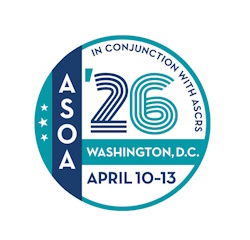It all began with taking my grandparents in for cataract surgery way back in 1998 to Genstler Eye Center in Albany, Oregon. They had a viewing room where a technician sat with me and explained the process in detail. They had a video camera, and I was able to watch the surgery. I was inquisitive and asked a lot of questions. I had no medical background, but the technician said I should apply for a position since they were hiring. I did apply and to my surprise was called in for an interview. At the time the office was transitioning from paper charts to EHR system. I was able to help with that transition at same time I was being trained as an ophthalmic technician. Around a year later I got my COA. I was the back-office Lead Technician for many years after that and I soaked up as much as I could learn. In 2005, I moved to Las Vegas and got a job right away with Dr. Tyree Carr and Dr. Marietta Nelson. They were wonderful doctors who opened my eyes even deeper into ophthalmology. At this time, I knew Ophthalmology would be with me for the rest of my working years. I joined New Eyes Las Vegas in 2012 and this is where my mentor, Deanna Heisey encouraged me to keep going further into management. I became the back-office supervisor of a larger group and received my COT certificate. Although, I felt intimidated by the thought of being an Administration of an entire practice, she challenged me and set a goal for me to get my COE. After studying, I finally took my COE test in January 2023 and passed! Then the very next week my mentor announced she was leaving and that I should be the next Administrator. Although I felt like this was too soon for my mentor to leave me, I know that she has been teaching me in small doses all those years to do this. If you wait till you're completely ready - you will never be ready. Challenge yourself to bigger things every chance you get, you will always surprise yourself with great accomplishments.
Misty Richardson, COT, COE










